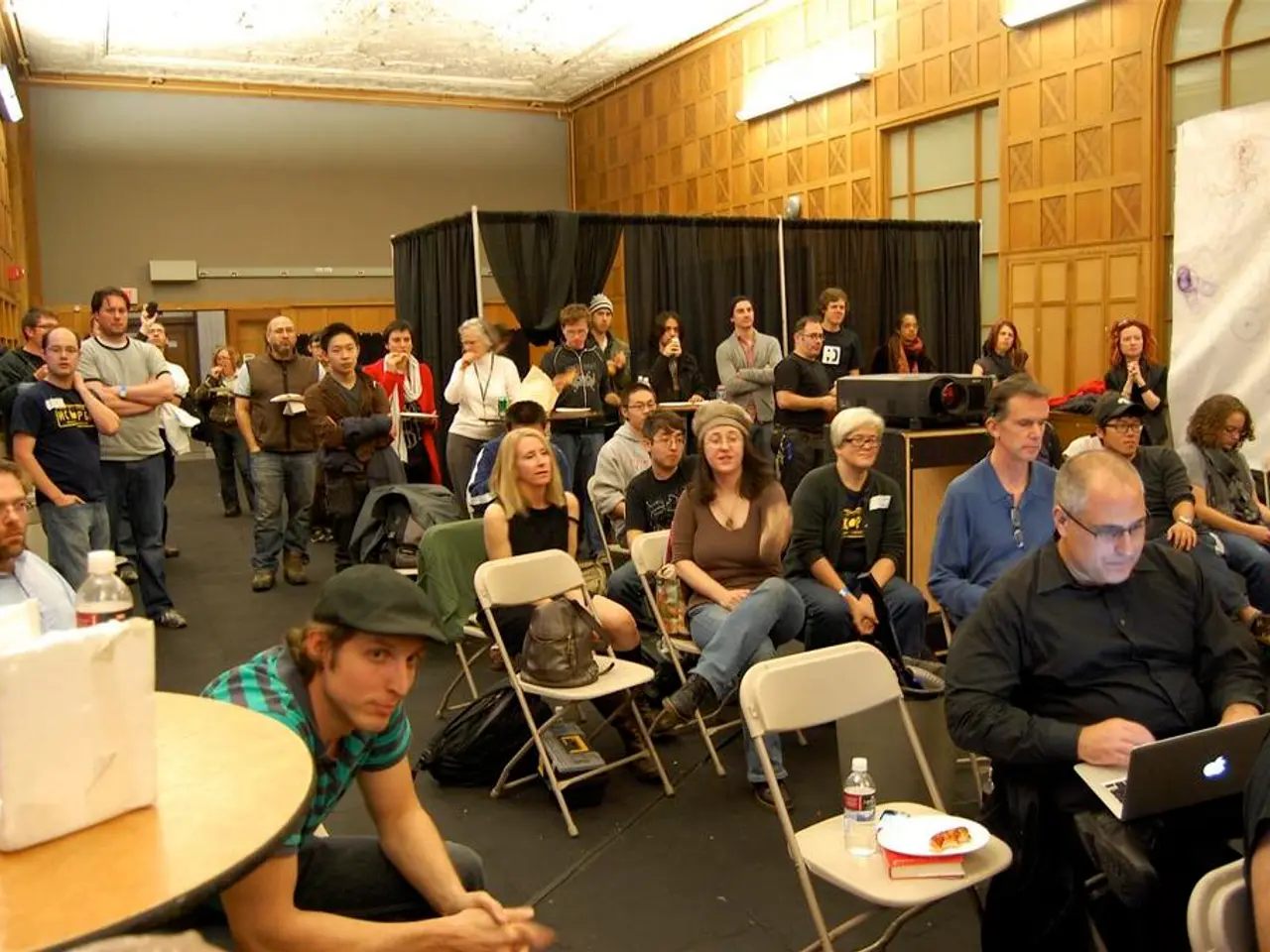Excessive Workload and Lack of Concentration: 5 Strategies to Improve Focus
In today's digital age, information overload is a common issue faced by professionals. The Federal Institute for Occupational Safety and Health (BAuA) suggests that effective work design as information management is key to preventing temporal overload and burnout in complex knowledge work [1].
To achieve this, professionals should identify the actual information needs of employees, structure and control the flow of information to avoid excess, and design work tasks and interfaces to match information requirements and avoid overload.
Professionals should make conscious decisions about which program, medium, or tool is suitable for which purpose. Using digital tools sparingly and sensibly can help in managing information overload. Where complete refrain is not realistic, professionals should at least limit the times of their accessibility and draw clear boundaries between work and leisure time.
It can be helpful for professionals to completely refrain from a work phone or work messenger apps on the private smartphone. Limiting information overload can also be achieved by disabling unnecessary notifications, unsubscribing from mailing lists, cleaning up email inboxes, deleting outdated information from the archive, and using out-of-office assistants. Using out-of-office assistants can help manage information flow and improve focus on tasks.
Professionals who work from home should pay particular attention to switch off work devices during breaks and after work. Effective time management in work involves planning time slots to fully dedicate oneself to a task and ignoring further information flow. Prioritizing tasks is important for effective time management in work.
In addition to these measures, related expert sources recommend prioritizing mental health by offering resilience, mindfulness, and stress management workshops to help workers handle information stress effectively [2]. Encouraging physical activity breaks and ergonomically supportive routines that foster well-being and improve cognitive capacity for managing information are also suggested [2]. Promoting appreciative communication and a feedback culture where team members feel seen and heard, reducing the cognitive and emotional burden of excessive information, is another valuable approach [2].
BAuA emphasizes a systematic design approach to information and work organization combined with fostering mental and physical health and constructive communication to cope with information overload in professional settings [1][2]. By adopting these practices, professionals can enhance their productivity and well-being in the workplace.
[1] Federal Institute for Occupational Safety and Health (BAuA). (n.d.). Managing information overload in daily work. Retrieved from https://www.baustellenarbeitsschutz.de/ [2] Hewlett-Packard Enterprise. (n.d.). The Digital Workplace: Managing Information Overload. Retrieved from https://www.hpe.com/




